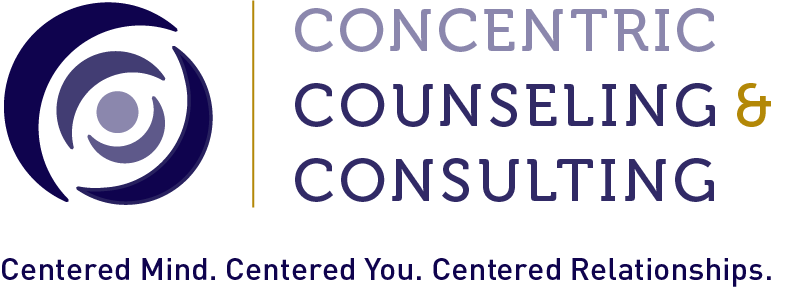Men, Loneliness, and the Substance Substitute
/By Concentric Counselor Myron Nelson, LCPC
We know it is true when we take stock of our lives, although it is easier to simply ignore. We do not have the same number of friends that we used to. We definitely do not have the same number of close friends, friends we could call in an emergency. Whether it is technology taking up more of our time, a culture that promotes handling problems on your own, or some other reason, it is clear we do not connect in the same way.
Due to factors that will be explored in this blog post, half of the population is more vulnerable to the Great Friend Migration. Men, myself included, are bombarded with societal forces that encourage segregation. We are instructed to cope with problems silently, internally. Isolate yourself or be shamed. We are taught to detest emotions, push them down or aside but do not let them grow. Best to not spend time with other people if we are in an emotional state.
Consequently, our problems grow bigger, the stress becomes heavier, and the emotions continue to build up until we are neck deep. Keeping quiet and keeping it to ourselves, we fall deeper into our own thoughts. Expecting that other people do not want to be burdened with our issues. We drift apart from friends because we do not know how our problems could possibly fit into their lives.
What’s next? We turn to something that can help. Something that makes us feel better, it’s reliable, it’s dependable, it does not judge us, and it does not share our secrets. Alcohol and other drugs can become a refuge for emotional pain. They can buffer feelings of anxiety or depression and temporarily give us the mask we want to keep the facade going.
Alcohol and drugs can slowly become something we depend on but that dependency is dangerous. What starts as a solution to the problem becomes its own problem. Substances attempt to fill the void that other people used to, but they will never be enough. Substances can never talk back to us and make us feel cared for and understood. They cannot debate options with us and challenge us to be better. Substances offer complacency but relationships give us acceptance and growth. It takes courage and a leap of faith to connect with another man and share your problems but it is truest the solution.
The irony is, that we all want to lean on each other but are scared to lean first. It is society’s expectation about men and men’s expectations about society that propel this problem into an epidemic. When we let our predictions go and venture into reality, it’s clear that other men feel the same way we do and we can meet each other with compassion and caring.
Men are not inherently isolating and society is not inherently cold. Expect that other people feel the way you feel. Expect that as a man you will experience things that other men experience. Expect that others want to know about your struggles because they want to be able to lean on you too.
If you find yourself experiencing The Great Friend Migration, convincing yourself that filling your loneliness with substances is better than the alternative - opening up, reaching out, and relying on a male friend, I encourage you to stand up to your shame, choose connection, and lean it to a friend.






